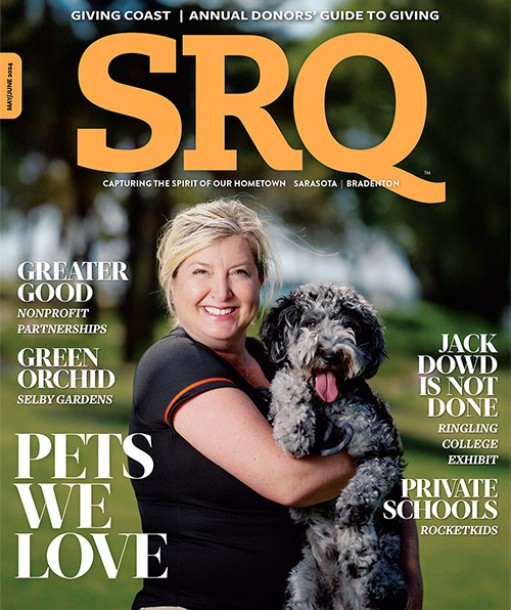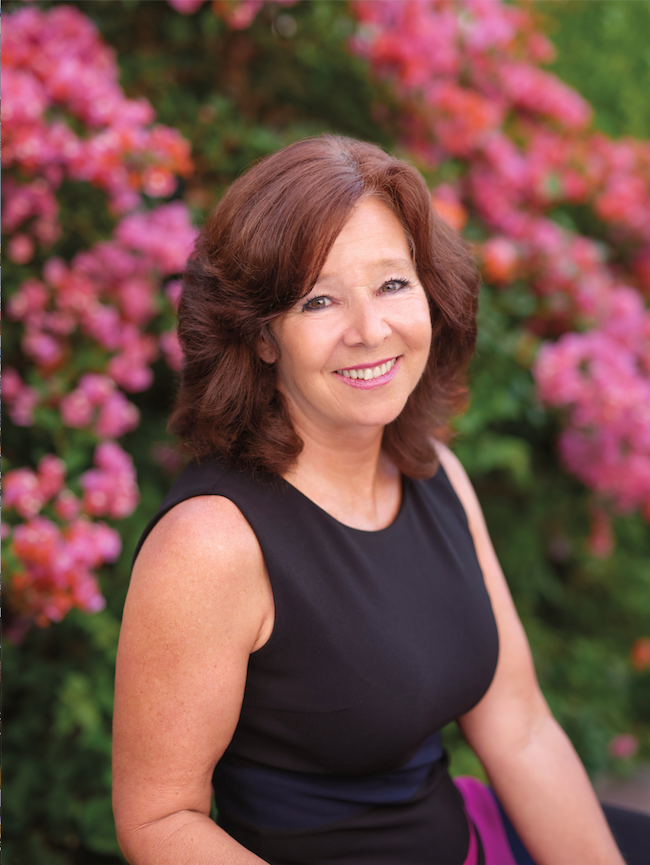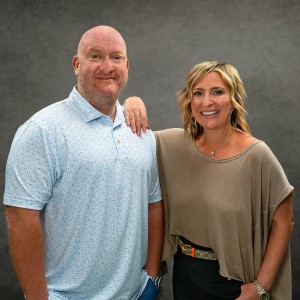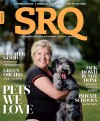If Kathy Kristof were a storybook character, she would be the crimson-caped, super sleuth reporter wearing turbo-powered spectacles and fearlessly wielding a lightning bolt-infused pen poised to strike against the misdeeds of corporate bad actors. Think Sherlock Holmes meets Superwoman with a bit of Hermione Granger thrown in for good measure and you’ve got the picture.
Good for us she’s the real deal. A regular superhero in the digital information age where a bad Google review is mightier than the sword. The veteran award-winning financial journalist and author has used her uncanny talent and passion for sniffing out the truth and protecting consumers from deception for decades. Now as Creator, CEO and Editor of SideHusl.com, a website that provides information on hundreds of ways to make money in the gig economy, Kristof is putting the power of online information in consumers’ hands helping them to achieve financial freedom safely.
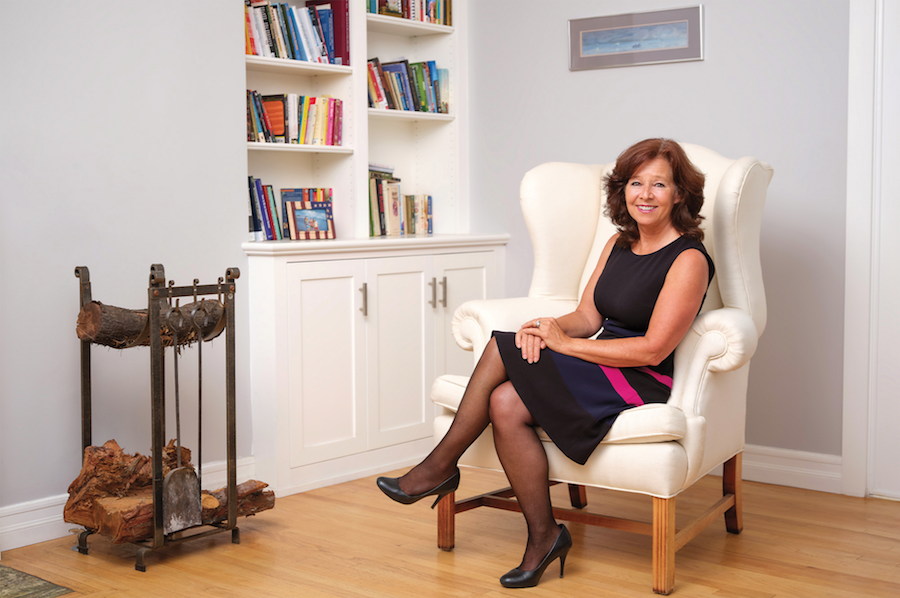
KATHY KRISTOF PHOTOGRAPHED AT HER HOME IN SOUTHERN CALIFORNIA. PHOTO BY JONATHAN YOUNG.
Kristof spent 19 years at the Los Angeles Times providing sage advice to her loyal fans through her syndicated financial column with a reach of roughly 40 million readers nationwide. After leaving The Times in 2008, she wrote for MSN, CBS News, Kiplinger, Forbes, Reuters and dozens of other publications. She’s the author of three books, including Kathy Kristof’s Complete Book of Dollars and Sense; Taming the Tuition Tiger; and Investing 101. She is the recipient of numerous awards including Consumer Federation of America’s Betty Furness Media Service Award and the CACE Award for Excellence in Consumer Education. As the honored Keynote Presenter at SRQ Magazine’s Together We Roar Leadership Luncheon this coming May 2022, she is sharing her insights on opportunity, advocacy and the power of gratitude.
Kristof says she has always been passionate about writing and originally wanted to be a novelist. A journalism class in college and subsequent internship in the business section at the Los Angeles Times forged her path as a super sleuth who helps people to understand the information she uncovers in an easy-to-digest way. “Everything clicked. I knew business writing was what I wanted to do because I could use both my verbal skills and the analytical side of my brain to explain things that other people found complicated,” she says. “When you’re doing financial reporting, normally you’re either a verbal person or you’re a math person. And if you’re a little bit of both, it’s a great opportunity to help the verbal people understand the math side and vice versa. If you understand the rules well enough to know how supply, demand and economic forces can push things in a particular direction you can dive into the details of how something works and predict what will happen. I graduated from college in the middle of a recession and so understanding what was going on economically was fascinating.”
More than just understanding the rules of the money game, Kristof has a larger mission when it comes to her chosen subject—financial freedom. “I write about money because freedom is incredibly important to me,” she says. And until you get a handle on your money, you are a slave to others, be they bosses, creditors or the people who pay your bills. When you are a slave to money, you lose all perspective about what is important in life, which, of course, is not money. I write about money because money is a tool. If you know how to use it, it can make you free.”
While researching and reporting on the burgeoning gig economy for numerous publications, Kristof became aware of the risks and rewards of the various online platforms. An ‘aha’ moment inspired by her children’s online experiences during college made her realize people were being taken advantage of. “I started researching different sites that pay you to take college notes and upload them,” she says. “The first site I reviewed paid $25 per upload. Another site looked identical to the first one, but you got 25 points for uploads. You would think points are the same as dollars but it turns out the points on this other site are worth less than a penny each. So if you sold your notes to the first site you would get $25. If you sold to the other site, you get about 20 cents. ‘Wow, I thought, that is so exploitative’.”
Kristof was getting pitched daily with a plethora of online money-making opportunities and to keep track of them she created her own directory and realized she had to make it public. “There was no comprehensive directory of all the things you can do but more importantly, there were no consumer reports,” she says. “There was nobody warning people about abusive online platforms that would steal their earnings and put their assets at risk. I ended up dropping everything else and going after this market, spending a lot of time researching, reviewing, and rating all the online platforms to tell people where the good opportunities were and wave them away from the really abusive platforms.” From that inspiration, SideHusl.com was born. SideHusl.com researches, reviews and rates more than 400 online gig platforms and provides standard disclosures for pay, commissions, fees, risks, rewards and requirements. Kristof’s passion project is now the ultimate source for people looking to make extra cash or explore a side interest and has been featured in publications ranging from U.S. News and Inc. to NerdWallet and NextAvenue.
In keeping with Kristof’s consumer advocacy focus, SideHusl is successfully providing real opportunity for its users while mitigating the inherent risk. “I’m really proud of the work we’re doing,” she says. “I started Sidehusl because I felt that freelancers were being put in an untenable situation and at risk of being exploited by giant multi-billion dollar companies. In the early days people were taken advantage of because the whole business model was based on churn and I felt that was insanely unfair.”
Rather than just put the spotlight on bad actors in the business, Kristof is advocating for change and the transparency she believes is necessary in this industry. “My big goal in the world is to make the companies play fair and the only way I can do that is through disclosure,” she says. “Instead of implementing dumb freelance laws, I wish the government would just demand clear and unequivocal disclosure like they do with other financial contractual transactions like credit cards, mortgages and mutual funds. By creating standard disclosure people will avoid the abusive platforms and go to the good ones. As a result, the abusive platforms will either improve or go under because that’s how a good market works. Disclosure actually levels the playing field. The good companies survive and the bad ones do not. Great information gives people the ability to go where they’re treated fairly. That’s what I’m hoping to do.”
Impressively, some abusive platforms have already changed their behavior as a result of her efforts. She says, “A company was upset that I wrote a critical review about them and it was tracking really highly on Google. So they called me and said they were going to sue me to take their review down. I said, ‘Great, go for it, but first tell me if I’ve written something that’s inaccurate, I’m happy to correct it.’ But it wasn’t inaccuracy they were upset about. So I just told them again, ‘Sue me. You’ll just make me famous. And more people will find that review’. After they talked to their attorneys they came back and said, ‘What is it going to take for you to change your review?’ And I said, ‘That’s easy. You have to change your policies so that you treat people fairly.”
Kristof has seen increasing interest in side gigs during the pandemic with people trying to make money through alternate work options and selling household items for extra cash. The online platforms have been a huge resource for those whose income has suffered and she wants to make sure that everyone knows no matter what their situation, there’s a SideHusl for them. “There are some people for whom the traditional economy works really well but there are a lot of people for whom it doesn’t—whether it’s because of a disability or family obligations or people who are not retirement-ready,” she says. “For whatever reason, if that traditional nine to five work doesn’t fit you, the best thing about the burgeoning freelance economy is that you’ve got a zillion different options and right now, today you can take action that can put you in a better spot.”
To make the whole process easier, Kristof has compiled all of her research and data into an online quiz that will narrow a person’s interests, skills, resources and goals into the perfect opportunity for them. “My goal is within five minutes of starting our quiz, you will have suggestions of things that you can do and in 24 hours, turn around and start making money.”
Kristof is a huge proponent of the flexibility gig work provides and in larger context believes the recent work-from-home culture we experienced during the pandemic is the wave of the future and can be hugely beneficial to employers and staff alike. “I think that if we’re thoughtful about how we approach that post-pandemic era, we could actually really make working conditions better for everybody and make businesses more productive at the same time,” she says. “A big benefit companies have realized is that remote work saves them a fortune and gives their workers a lot more flexibility. When you have the flexibility to work in the structure that suits you then you’re most productive. It’s a classic win-win. I started working from home when my daughter was born and it changed my life. It allowed me to do what I loved career-wise and still have time to pick up my kids from school and volunteer in their classrooms. Remote working allows you to save that time for the people who are most important to you, and I think that’s a wonderful thing for society.”
Kristof believes that success comes down to the basics. She says, “Regardless of the economy, follow your passions but along the way work hard, be honest, kind and responsible because those actions have a way of coming back to benefit you and will pay off no matter what. If you don’t do those things because that’s your character then do them because it’s practical.”
Her mission is to make a difference in the world in whatever way she can and she believes small actions are incredibly powerful. “I have this theory that nobody actually has to be the giant superhero,” she says. “If we all just did little things to make the world a better place like helping somebody with their groceries or just smiling at someone who’s having a bad day, all those little tiny things make up the fabric of our world. And so, my philosophy is just to do what you can. If everybody picks up their one little grain of sand, you’ve got a beach, so it’s worthwhile.”
As for her superpower, Kristof says its gratitude, and notes being thankful has been her key to navigating life’s challenging times. “I am immensely grateful so whenever I get down about something I start thinking of all the things that are right in my life and that list is so long that I never actually get to the end of it. I recommend instead of looking at what you don’t have, look at what you do have. You’re going to find amazing gifts.”
Learn more about SideHusl.com here



